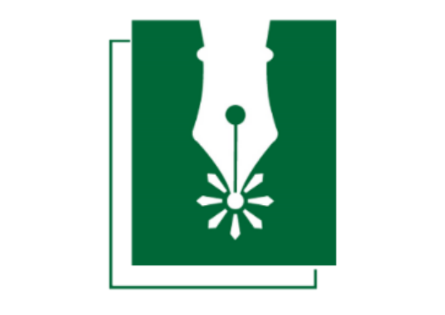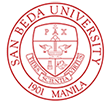Mending Humanity’s Broken Inner Ecology: An Integral Ecology and Theory in Action Towards Ecological Preservation
Keywords:
Christian anthropology, Environmental destruction, inner ecology, integral ecologyAbstract
The ecological crisis is a pressing global challenge, manifesting in climate disasters, environmental degradation, and rising inequality. Frameworks like the United Nations' Sustainable Development Goals highlight the urgency of action, supported by religious leaders such as Pope Francis in Laudato Si’ and Laudate Deum. While these calls for change are crucial, this study explores a deeper aspect: the human inner ecology. It posits that lasting ecological solutions must begin within the individual. Grounded in biblical Christian anthropology, Pope Francis’s vision of integral ecology, and Ken Wilber’s Integral Theory, the research presents ecological preservation as an internal, transformative process. Using a qualitative narrative inquiry approach, the study examines personal stories from diverse spiritual traditions of individuals who have undergone significant transformation in their relationship with nature. These narratives highlight shared practices such as mindfulness, soul purification, non-violence, and earth-centered rituals that fostered reconnection with both self and environment. The research also led to the development of a conscious ecological workshop program, aimed at cultivating self-awareness, emotional resilience, spiritual renewal, and ecological responsibility within youth and community groups. By emphasizing practical application, the study offers a model for ecological conversion, asserting that meaningful change begins not just in policy but in the healing of the self.
References
Al-Ghazali, A. H. M. (2007). Inner dimensions of Islamic worship (M. A. Fitzgerald, Trans.). Islamic Foundation. (Original work ca. 11th century CE)
Bateson, G. (1972). Steps to an ecology of mind. Chandler.
Berry, T. (1999). The great work: Our way into the future. Bell Tower.
Bhagavad Gita. (n.d.). Chapter 14, Verses 5–18.
CAFOD. (2024). Laudate Deum: Your questions answered on Pope Francis’ Apostolic Exhortation. https://cafod.org.uk/pray/laudate-deum-explained
Cardinale, B. J., Duffy, J. E., Gonzalez, A., Hooper, D. U., Perrings, C., Venail, P., ... Naeem, S. (2012). Biodiversity loss and its impact on humanity. Nature, 486(7401), 59–67. https://doi.org/10.1038/nature11148 DOI: https://doi.org/10.1038/nature11148
Chazdon, R. L. (2008). Beyond deforestation: Restoring forests and ecosystem services on degraded lands. Science, 320(5882), 1458–1460. https://doi.org/10.1126/science.1155365 DOI: https://doi.org/10.1126/science.1155365
Creswell, J. W., & Plano Clark, V. L. (2007). Designing and conducting mixed methods research. Sage Publications.
Dicastery for Promoting Integral Human Development. (2024). An integral ecology: A holistic approach to global challenges. Laudato Si Action Platform. https://laudatosiactionplatform.org/integral-ecology-a-holistic-approach-to-global-challenges/
Eco Resources. (2023). The four Rs of waste management. https://ecoresources.net.au/the-4rs-of-waste-management/
Esbjörn-Hargens, S. (2009). Integral ecology: Uniting multiple perspectives on the natural world. Integral Books. DOI: https://doi.org/10.1002/9780470479216.corpsy0447
Feinstein, D. (2022). Uses of energy psychology following catastrophic events. Frontiers in Psychology, 13, Article 856209. https://doi.org/10.3389/fpsyg.2022.856209 DOI: https://doi.org/10.3389/fpsyg.2022.856209
Francis. (2015). “Laudato Si’” (“Praise be”): On care of our common home. Vatican Press.
Francis. (2023). “Laudate Deum” (Praised God): Apostolic Exhortation to All People of Goodwill on the Climate Crisis. Vatican’s website. DOI: https://doi.org/10.4324/9781003263562-78
Garnett, S. T., Sayer, J. A., & du Toit, J. (2018). Improving the effectiveness of conservation through a focus on ecosystem services. Ecology and Society, 23(4), Article 40. https://doi.org/10.5751/ES-10197-230409
Goleman, D., & Davidson, R. J. (2017). Altered traits: Science reveals how meditation changes your mind, brain, and body. Avery Publishing.
Kabat-Zinn, J. (2003). Mindfulness-based stress reduction (MBSR). Journal of Psychosomatic Research, 54(1), 87–95. https://doi.org/10.1016/S0022-3999(02)00373-1
Kaplan, R., & Kaplan, S. (1989). The experience of nature: A psychological perspective. Cambridge University Press.
Kimmerer, R. W. (2013). Braiding sweetgrass: Indigenous wisdom, scientific knowledge and the teachings of plants. Milkweed Editions.
Kohn, L. (2008). Chinese healing exercises: The tradition of Daoyin. University of Hawaii Press.
Lao Tzu. (2009). Tao Te Ching (S. Mitchell, Trans.). Harper Perennial. (Original work ca. 6th century BCE)
Lopez-Claros, A., Dahl, A. L., & Groff, M. (2020). Responding to global environmental crises. In Global governance and the emergence of global institutions for the 21st century (pp. 360–378). Cambridge University Press. DOI: https://doi.org/10.1017/9781108569293.020
Magill, G., & Potter, J. (2017). Integral ecology: Protecting our common home. https://dokumen.pub/integral-ecology-protecting-our-common-home-1nbsped-9781527512108-9781527503762.html
McEwen, B. S. (2007). Physiology and neurobiology of stress and adaptation: Central role of the brain. Physiological Reviews, 87(3), 873–904. https://doi.org/10.1152/physrev.00041.2006 DOI: https://doi.org/10.1152/physrev.00041.2006
Myss, C. (1996). Anatomy of the spirit: The seven stages of power and healing. Harmony Books. https://www.penguinrandomhouse.com/books/118123/anatomy-of-the-spirit-by-caroline-myss/
New American Bible, Revised Edition. (2010). http://www.usccb.org/bible
Nieva, A. (2024). Personality traits as predictors of pro-environmental behavior: Evidence from the Philippines. Bedan Research Journal, 9(1), 145–173. https://doi.org/10.58870/berj.v9i1.68 DOI: https://doi.org/10.58870/berj.v9i1.68
Quilon, A. (2024). Role of eco-spirituality in psychological well-being of selected working women. Bedan Research Journal, 9(1), 196–220. https://doi.org/10.58870/berj.v9i1.70 DOI: https://doi.org/10.58870/berj.v9i1.70
Qur’an. (n.d.). Surah Ash-Shams (91:9–10). https://quran.com/91/9-10
Safi, O. (2003). Progressive Muslims: On justice, gender, and pluralism. Oneworld.
Shiva, V. (2016). Who really feeds the world? North Atlantic Books.
Suzuki, D. (2007). The sacred balance: Rediscovering our place in nature. Greystone Books.
Tatia, N. (2005). That which is: Tattvartha Sutra (U. S. Puligandla, Trans.). Jain Publishing Company.
Transformation Teaching. (2022). What are the four quadrants and how do they apply to chronic illness? https://www.transformationteaching.com/blog/what-are-the-four-quadrants-and-how-do-they-apply-to-chronic-illness
Tverberg, L. (2015). Levav – Heart and mind. En-Gedi Resource Center. https://engediresourcecenter.com/2015/07/01/levav-heart-mind
United Nations. (2024). 17 goals: Sustainable development. https://sdgs.un.org/goals
Vatican News. (2023a). Signs of climate change are increasingly evident. https://www.vaticannews.va/en/pope/news/2023-10/laudate-deum-pope-francis-climate-crisis-laudato-si.html
Vatican News. (2023b). “Laudate Deum”: The Pope’s cry for a response to the climate crisis. https://www.vaticannews.va/en/pope/news/2023-10/laudate-deum-pope-francis-climate-crisis-laudato-si.html
Wilber, K. (2000). A theory of everything: An integral vision for business, politics, science, and spirituality. Shambhala Publications.
Yao, X. (2000). An introduction to Confucianism. Cambridge University Press. DOI: https://doi.org/10.1017/CBO9780511800887
Published
How to Cite
Issue
Section
Copyright (c) 2025 Noel Santander

This work is licensed under a Creative Commons Attribution-NonCommercial-NoDerivatives 4.0 International License.











